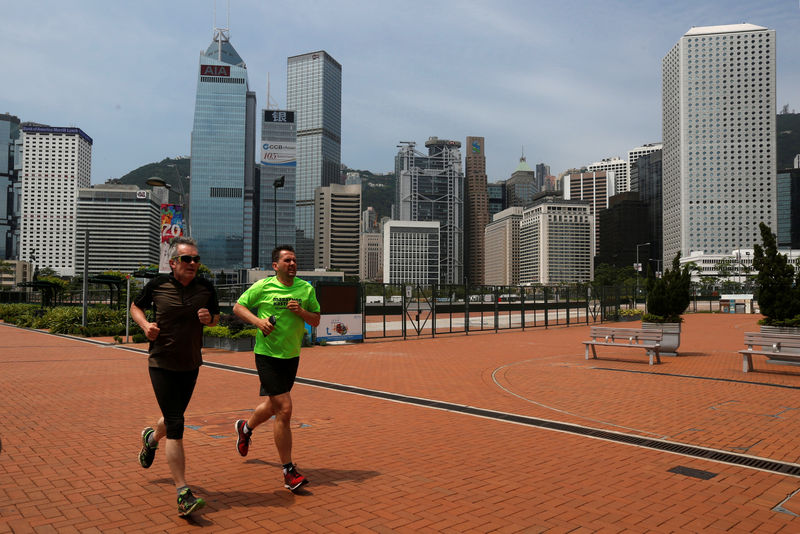HONG KONG (Reuters) - Business activity in Hong Kong contracted at the fastest pace in 21 years in November, dragged down by anti-government protests and softening global demand, an IHS Markit survey showed on Wednesday.
Increasingly violent demonstrations have disrupted the Chinese-ruled city for nearly six months, battering its retail and tourism sector and plunging its economy into recession for the first time in a decade.
The seasonally adjusted headline Hong Kong Purchasing Manager's Index (PMI) fell to 38.5 in November, down from 39.3 in October and signaling the steepest private sector downturn since the SARS epidemic in early 2003.
A survey reading above 50 indicates expansion, while a figure below 50 denotes contraction on a monthly basis.
"Escalating political unrest saw business activity shrinking at the steepest rate since the survey started in July 1998," said Bernard Aw, principal economist at IHS Markit.
"The average PMI reading for October and November combined showed the economy on track to see GDP fall by over 5% in the fourth quarter, unless December brings a dramatic recovery."
Demand from mainland China shrank for a nineteenth straight month in November, although the pace of contraction eased from October.
Companies also continued to scale back their purchases of raw materials and other inputs, with 38% of survey respondents predicting weaker activity in the year ahead, citing political unrest and the protracted U.S.-China trade war.
Hong Kong's retail sales fell the most on record in October, sinking 24.3% from a year earlier, government data showed on Monday. Tourist arrivals plunged nearly 44%.
Protesters are angry by what they see as Beijing's tightening grip over the city's cherished freedoms promised under a "one country, two systems" formula when Britain returned it to Chinese rule in 1997.
China denies interfering and says it is committed to the “one country, two systems” formula put in place at that time and has blamed foreign forces for fomenting unrest.
The crisis has heightened tensions between Washington and Beijing, complicating the two sides' efforts to negotiate a trade deal.
Economists at ING said Hong Kong is sliding into a hard-landing recession.
"No one is expecting a sudden end to the violent situation. We're forecasting GDP growth at -7% for the fourth quarter, and full-year growth will be -2.25% in 2019, which is close in scale to 2009's recession of -2.5%," they said in a note on Monday.

The economy could shrink 5.8% in 2020, assuming trade war uncertainty and violent protests drag on through the year, ING said.